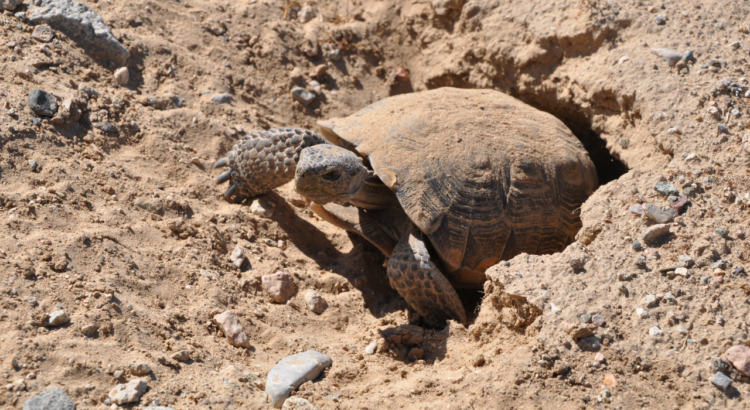
In the Mojave Desert, in the western United States, the Marines’ camp has included a special area dedicated to desert tortoises, native to the region, since 2005. This initiative aims to protect this endangered species, particularly from predators.
Since 2005, the Marines have dedicated a space in their camp to protect the desert tortoises, an endangered species.
An area surrounded by barbed wire
The Marines in the United States are certainly involved on all fronts. Since 2005, an area has been designated to preserve the desert tortoises, a critically endangered species. This facility, located within the Marine Corps Air Ground Combat Center in the Mojave Desert in the western U.S., houses about 1,000 individuals and is surrounded by barbed wire.
Phys.org reports that the goal is to protect these tortoises from predators like ravens or coyotes, as well as from military equipment such as explosives or tanks, which may be present at the largest Marine base in the U.S., covering no less than 1,189 square miles.
Desert tortoises, endangered partly due to human activity
The desert tortoise, Gopherus agassizii in Latin, is a species found in the Mojave Desert, as well as in the southwestern United States and the northwestern part of Mexico. These reptiles, which can grow up to 36 cm in length, are threatened for several reasons.
One of the most impactful reasons is human activity. Indeed, the rocky shelters or burrows necessary for the tortoises to regulate their temperature and limit water loss are often destroyed by humans, particularly to build roads. They are also vulnerable in terms of health, as they are susceptible to diseases, particularly respiratory illnesses. This is also where the Tortoise Research and Captive Rearing Site, the name of this « enclosure, » helps scientists prevent and treat these diseases.
The military also fights against poaching
This initiative is not the first time that special forces have stepped in to protect animals and secure their future. Indeed, many military forces do not hesitate to mobilize, as is the case in South Africa, which has increasingly been involved in the fight against poaching gangs.
This phenomenon, mainly present in Africa, is one of the leading causes of species extinction. Protecting these animals through military forces remains a relatively recent effort. Animal protection organizations like IFAW do not hesitate to call on veterans to rally support for their cause.

